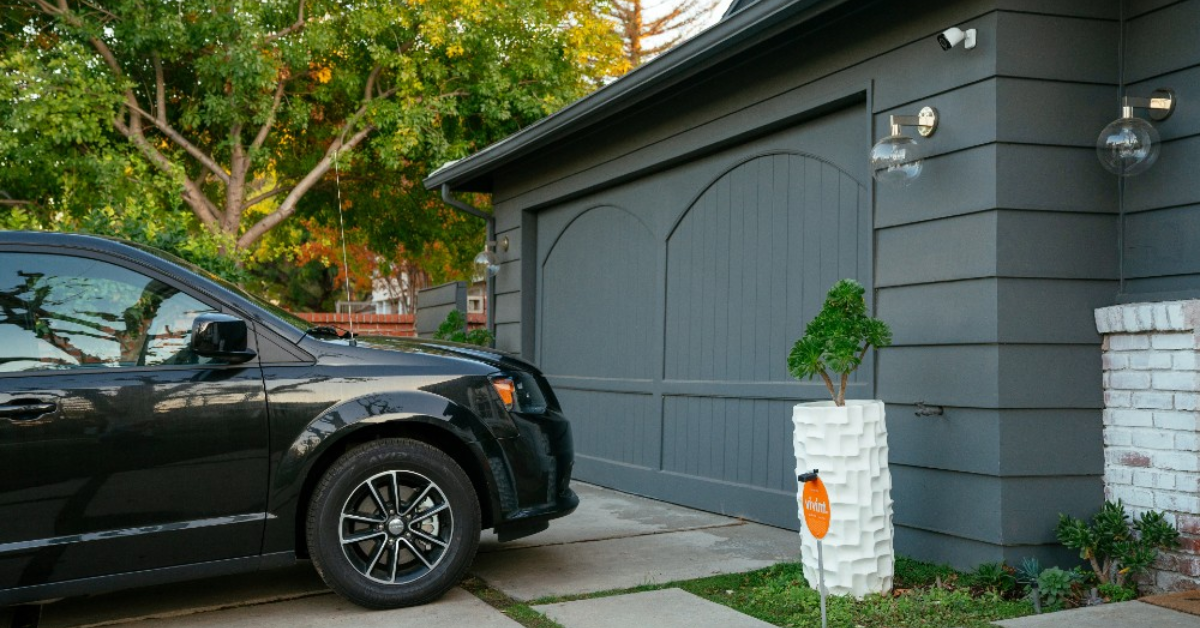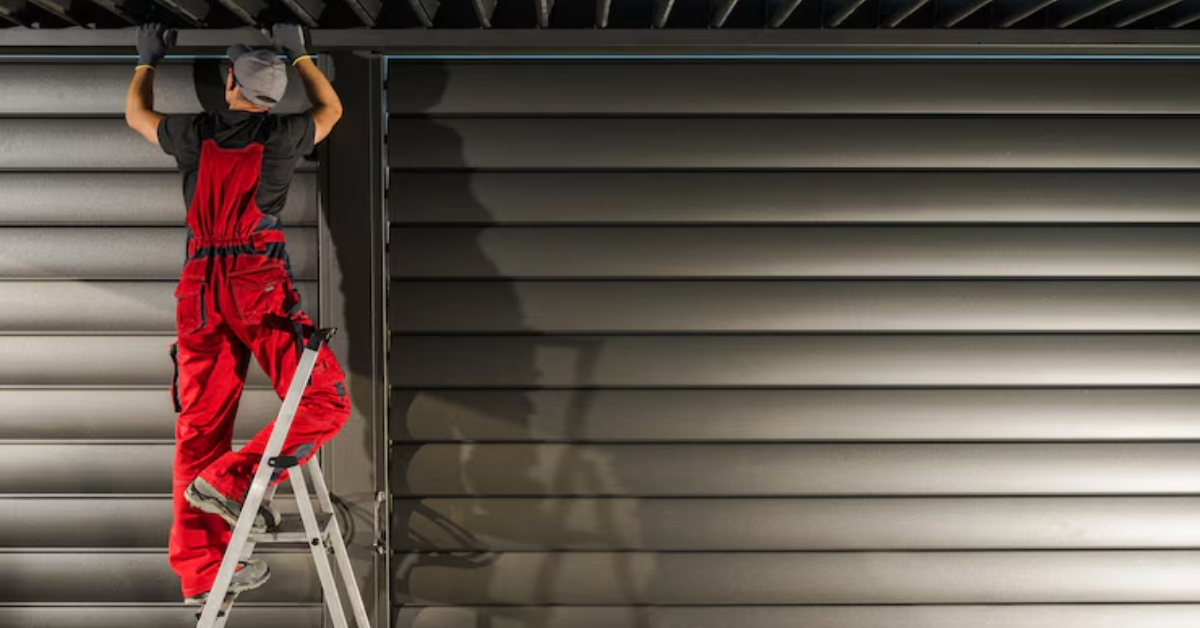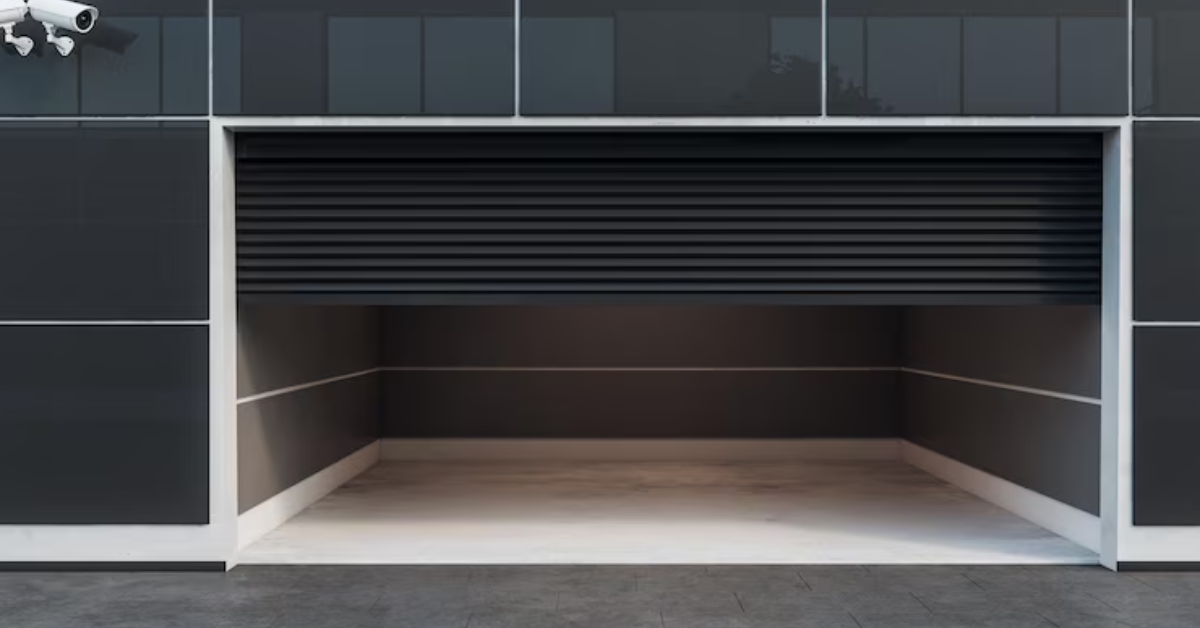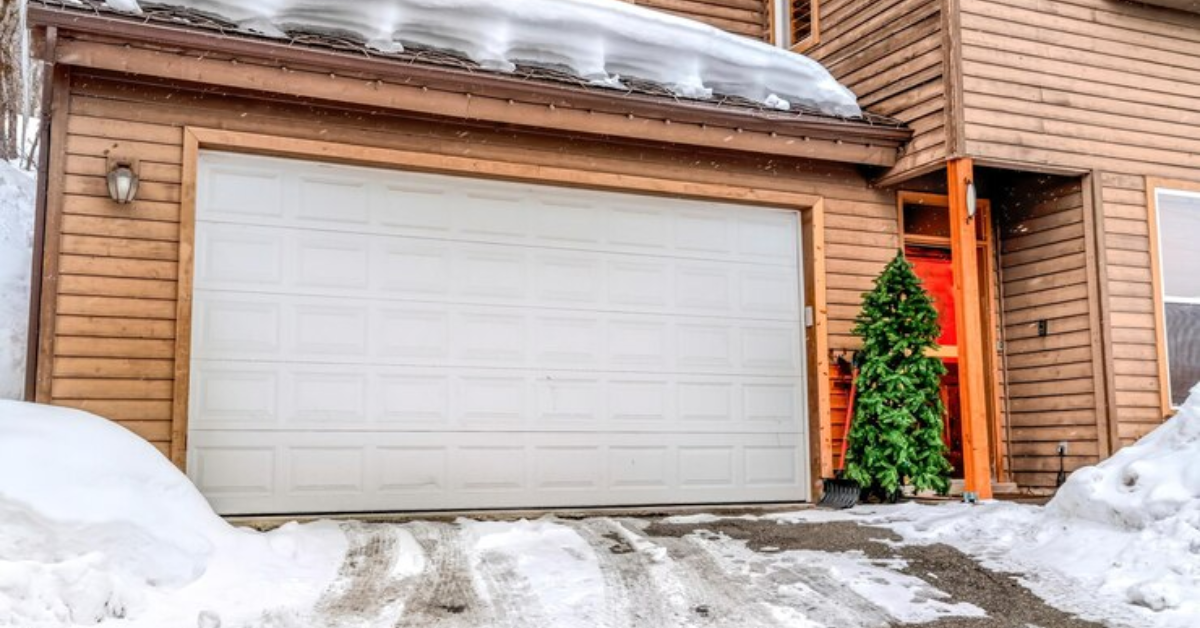Increase Security with Smart Garage Door Technology!
The garage, often considered a home's second entrance, serves as a versatile space for various purposes, from storing vehicles to functioning as a workshop or extra storage room. With this significant role in our daily lives, it's important to safeguard the contents of our garages. One area of concern that has long troubled homeowners is the security of their garage doors. A compromised garage door can provide easy access to intruders, leading to potential theft, vandalism, and even safety risks for your household.
The significance of garage door security cannot be overstated. It's not just about protecting your vehicles and valuable belongings; it's also about ensuring the safety and well-being of your family. Traditional garage doors, with their mechanical locks and limited security measures, have left vulnerabilities that burglars can exploit.
The Role of Smart Technology
Fortunately, the rapid advancement of smart technology has revolutionized the way we approach garage door security. Smart garage door technology, with its array of innovative features and connectivity options, has become an invaluable tool for homeowners seeking to enhance their security measures. This technology allows you to monitor, control, and secure your garage door remotely using your smartphone, tablet, or computer.
Here, we will take a look into the world of smart garage door technology and explore how it can help you increase security while providing convenience and peace of mind. We will discuss the fundamental principles behind these systems, their key features, and the benefits they offer. Furthermore, we will also guide you through choosing the right smart garage door system and share tips on enhancing the overall security of your garage.
How Smart Garage Doors Work?
Smart garage door technology is a modern solution that connects your garage door to the internet and enables you to control it remotely using your smartphone or other internet-connected devices. Unlike traditional garage door systems, which rely on manual operation or basic remote controls, smart garage door technology brings automation and connectivity to your garage door.
Smart garage door systems offer numerous
advantages, enhancing convenience, security, and energy efficiency. With these systems, you can remotely open and close your garage door, receive real-time alerts, and ensure your garage's safety. They eliminate the need to carry physical remotes, providing added convenience, and can integrate with your home automation ecosystem for a seamless experience.
Smart garage door systems consist of a smart controller,
sensors, and a mobile app. The smart controller connects to your home's Wi-Fi network, allowing you to control your garage door remotely. Sensors, like motion detectors and obstruction sensors, enhance safety. A dedicated mobile app on your smartphone serves as the interface for controlling and monitoring your garage door. You can set schedules, automation rules, and receive notifications, making your garage door intelligent and connected to your daily life.
Key Features of Smart Garage Door Technology
Remote Control and Monitoring: One of the key features of smart garage door technology is the ability to remotely control and monitor your garage door. With the help of a smartphone app, you can open or close your garage door from anywhere, providing convenience and peace of mind. Whether you're at work, on vacation, or inside your home, you have control at your fingertips.
Smartphone Apps and Integration:
Smart garage door systems come with dedicated smartphone apps that make it easy to interact with your garage door. These apps often offer integration with other smart devices in your home. This means you can manage your garage door alongside your other connected devices, creating a unified and efficient smart home ecosystem.
Video Surveillance and Motion Detection:
Many smart garage door systems include video surveillance and motion detection capabilities. This added security feature allows you to monitor your garage and receive alerts when motion is detected. It's a valuable tool for keeping an eye on your property and ensuring the safety of your belongings.
Secure Access Codes and Authentication:
Security is paramount when it comes to your garage door, and smart technology addresses this concern. Smart garage door systems offer secure access codes and authentication methods. You can provide unique access codes to family members or trusted individuals, ensuring that only authorized individuals can control your garage door.
Notifications and Alerts:
Smart garage door technology keeps you informed with real-time notifications and alerts. You'll receive messages on your smartphone when your garage door is opened or closed. This feature adds an extra layer of security and enables you to stay in the loop regarding the activity of your garage door, enhancing your overall awareness and control.
Choosing the Right Smart Garage Door System
When selecting a smart garage door system, it's essential to consider its compatibility with your existing garage door. Different systems may work better with specific door types or brands. Make sure the smart technology you choose can be seamlessly integrated with your current setup to ensure it operates smoothly and efficiently.
Your budget is a significant factor when choosing the right smart garage door system. These systems come in various price ranges, so it's important to determine how much you're willing to invest. Keep in mind that while some advanced features may come at a higher cost, they can provide added security and convenience.
The installation and setup process can vary from one smart garage door system to another. Some systems may require
professional installation, while others are designed for
DIY enthusiasts. Consider your technical skills and the complexity of the installation process to ensure a smooth setup. Make sure to read user reviews and product manuals to understand what's involved.
To make an informed decision, it's a good practice to research reputable brands and model recommendations. Look for reviews, recommendations from trusted sources, and feedback from other users. Brands with a track record of reliability and customer support can often be a safer choice. Ultimately, selecting a trusted brand and model can lead to a more satisfying experience with your smart garage door system.
Enhancing Garage Door Security
- Securing your Wi-Fi network is a fundamental step in enhancing garage door security. A strong, encrypted Wi-Fi connection helps protect against unauthorized access to your smart garage door system. Ensure your Wi-Fi network is password-protected and uses encryption protocols like WPA3 to prevent potential intrusions.
- Keeping your smart garage door system's software up to date is crucial for security. Manufacturers often release updates that address vulnerabilities and improve overall system performance. Regularly check for and install these updates to ensure your system remains secure against emerging threats.
- Strong, unique passwords are an essential part of garage door security. Make your passwords complex so hackers can't guess them. Additionally, many smart garage door systems offer two-factor authentication (2FA) for an extra layer of protection. Enable 2FA to require an additional verification step, such as a text message or an authentication app, when accessing your system.
- If you need to provide access to others, such as family members or service providers, it's important to use the guest access and permissions features offered by your smart garage door system. These features allow you to grant limited access to specific individuals while maintaining control over who can operate the garage door. This minimizes the risk of unauthorized users gaining access to your garage.
Smart Garage Door Technology for Increased Convenience
One of the key benefits of smart garage door technology is the ability to automate garage door operations. You can set schedules to have your garage door open and close at specific times, eliminating the need for manual operation. For instance, you can program your garage door to open automatically when you arrive home or close at a certain time each night, adding convenience to your daily routine.
Smart garage door systems often integrate seamlessly with home
automation systems. This integration allows you to control your garage door alongside other smart devices in your home, such as lights, thermostats, and security cameras. The result is a unified smart home ecosystem where you can manage all your devices from a single app or interface, streamlining your control and making your home more efficient.
When you're away on vacation or a business trip, smart garage door technology offers a vacation mode and scheduling feature. You can set your garage door to operate differently during your absence, making it appear as if you're still at home for added security. This can include random opening and closing times or limiting access to specific users. Vacation mode and scheduling provide peace of mind while you're away, knowing your home remains secure and protected.
Installation and Setup Guide
To ensure a smooth installation and setup of your smart garage door system, follow a step-by-step process provided by the manufacturer. This typically includes the following:
- Carefully unpack all components and read the user manual.
- Install any necessary mounting hardware, brackets, or sensors as directed.
- Connect the smart controller to your existing garage door opener and to your home's Wi-Fi network.
- Install the manufacturer's app on your mobile device.
- Pair the smart controller with the mobile app according to the instructions.
- Test the system to ensure it opens and closes the garage door as expected.
- Set up user accounts, access codes, and permissions for all users.
- If desired, configure automation rules and schedules for your system.
Troubleshooting Common Issues
Despite careful installation, issues may arise over time. Here are some common troubleshooting tips:
- If your system loses connection with your mobile app, try restarting your Wi-Fi router and ensuring it's within range.
- If your garage door doesn't close properly, check sensor alignment and clean any obstructions.
- Replace the remote control battery if it's not functioning, or re-pair it with the system.
- Make sure your system's software is up to date to resolve potential bugs and security vulnerabilities.
- If users encounter access issues, verify their permissions and access codes.
Maintenance Tips
Regular maintenance can help prolong the life of your smart garage door system and ensure it operates smoothly:
- Periodically lubricate moving parts, such as tracks, rollers, and hinges, to reduce wear and noise.
- Keep sensors clean and free from dirt and debris to maintain accurate operation.
- Replace the batteries in remotes, sensors, or other components when they become weak.
- Continuously monitor and apply security updates to keep your system protected.
- Regularly inspect the system for loose wires, damaged components, or signs of wear and tear.
By following these installation, troubleshooting, and maintenance guidelines, you can maximize the performance and lifespan of your smart garage door system while ensuring its reliability and security.
Conclusion
The integration of smart garage door technology has emerged as a transformative solution for enhancing security, convenience, and peace of mind in our daily lives. These systems have evolved to offer not only remote control and automation but also robust security features, seamless integration with our smart homes, and advanced control over our garage spaces. With the ability to secure access, receive real-time alerts, and monitor garage activities, smart garage door technology ensures that your garage is not only a space for your belongings but a fortress of security. Embrace this innovative technology, and empower yourself to take control of your garage door like never before, ensuring a safer and more efficient home environment.




